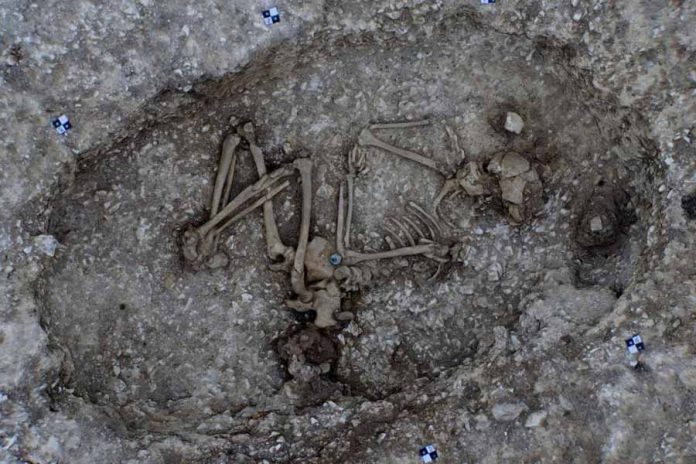The news comes days after popular British historian Dan Snow revealed that despite its age, more extraordinary secrets about the stone circle monument will be unveiled in the near future thanks to the new technology archaeologists are now using.
Archaeologists have unearthed Bronze Age graves, pottery and a mysterious C-shaped enclosure at the A303 excavation site at the Stonehenge monument. Scientists say one of the most exciting finds is a shale object, which was probably part of a ceremonial staff or a club. It was found in a 4,000-year-old grave. Archaeologists also discovered human remains which, the scientists assume, belong to the Beaker people who came to Britain around 2,500 BC. Scientists found an adult buried in a crouched position with a cup or a pot and ear bones of a child.
Near the Stonehenge visitor centre scientists unearthed pottery from the neolithic period, which researchers say could have been left by the people, who built the monument or visited it.
“We’ve found a lot – evidence about the people who lived in this landscape over millennia, traces of people’s everyday lives and deaths, intimate things. Every detail lets us work out what was happening in that landscape before during and after the building of Stonehenge. Every piece brings that picture into a little more focus,” said Matt Leivers, a senior specialist at Wessex Archaeology.
The Monument and The Tunnel
The government’s plan to build a two-mile tunnel near the A303 road to remove traffic near the iconic monument has faced a lot of criticism from archaeologists, who argue that construction works will pose harm to Stonehenge and may lead to the loss of hundreds of thousands of artefacts.
Highways England and Wessex Archaeology, which is in charge of the tunnel, said it is working sensitively and systematically on the project.
“There has been a huge amount of investigations so that this route can be threaded through so as to disturb as little as possible”, said David Bullock, A303 project manager for Highways England.
During the preliminary phase, experts dug out and sieved almost 1800 test pits and excavated more than 400 trial trenches. The next phase of work will see archaeological excavations on the site. It will last 19 months. The construction itself is set to begin in 2023.













